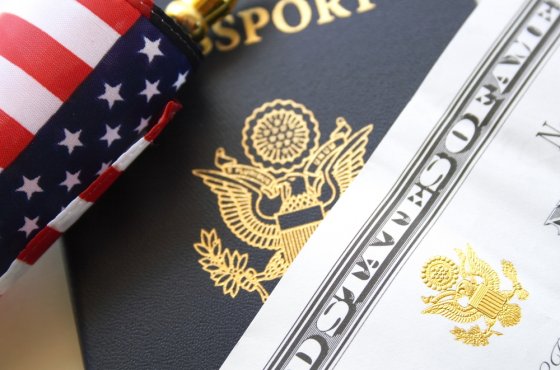Insurance companies refuse to work in Florida: there are too many natural disasters
Florida is no stranger to extreme weather events, and the people of the state have always taken this fact into account when insuring their homes. But as climate change exacerbates the frequency and severity of droughts, floods, tornadoes and hurricanes in the U.S., the reality that Floridians and the state's insurance companies are facing is rapidly changing. Newsweek.

Photo: IStock
Florida, according to a number of experts, is becoming "uninsured." And other states, particularly California, may follow suit in the near future.
Insurance storm in Florida
Over the past year, about 15 major insurance companies, including Farmers, have announced their intention to leave Florida. Many cite the state's increased vulnerability to extreme weather events.
“The crisis that is unfolding in Florida has been a long time coming,” said Charles Nice, chair of the Department of Risk Management and Insurance at Florida State University.
“A lot of this started in the 1990s when Hurricane Andrew hit southeast Florida. It was a real wake up call to the insurance industry about the level of catastrophic risk it experienced in the state,” he said.
On the subject: Two people in Michigan contract swine flu after attending agricultural fairs
Hurricane Andrew in 1992 caused an estimated $16-20 billion in insured losses. Seven major hurricanes, Nice said, caused a combined $2004 billion in damage between 2005 and 35, another "wake-up call to insurers about how frequent hurricanes can cause a lot of problems."
But it's not just climate change that has led to the state's current crisis. “Florida has a fraud problem,” Nice noted. “It accounts for 7 percent of the U.S. homeowners insurance market, and Florida accounts for 75 percent of all homeowner litigation.”
These two issues have been around for years, but since 2016, the number of storms hitting Florida has increased.
“That’s when the market started to enter the crisis that we’re still in,” Nice said. — In 2022, six insurance companies went bankrupt. While the state is making legislative efforts to address the insurance issue, Florida still has a hurricane problem.”
“Insurance companies are private enterprises, they are in business to make money. Decision making is all about risk and reward. And they decided that the risk was too great compared to the reward they were getting in Florida,” he said.
The Florida Department of Financial Services website lists 14 companies currently in the process of exiting the Florida market:
- American Capital Assurance Corporation
- Avatar Property and Casualty Insurance Company
- FedNat Insurance Company
- Florida Specialty Insurance Company
- Guarantee Insurance Company
- Gulfstream Property and Casualty Insurance Company
- Physicians United Plan, Inc.
- Southern Fidelity Insurance Company
- St. Johns Insurance Company, Inc.
- United Property and Casualty Insurance Company
- Universal Health Care Insurance Company, Inc.
- Universal Health Care Inc.
- Weston Property & Casualty Insurance Company
- Windhaven Insurance Company
Uninsured Homes
According to Gallagher Re, since 2000, U.S. insurance losses have exceeded inflation by an average of 6 percent per year.
In the 1990s, the country averaged $23 billion in insurance losses each year, but it has skyrocketed to $70 billion a year.
Climate change, which has been identified as the likely cause of the increase in the frequency of storms and hurricanes, means that the risk to homeowners and their insurers, especially in areas prone to extreme weather events, is constantly increasing, and this is difficult to assess in the long term.
“Damage associated with extreme events is actually the hardest part of risk for insurers,” said Yangjun Liao, an economist and researcher at Resources for the Future.
“If we continue to have more catastrophic events, then insurers will not have a complete understanding of how to measure this risk,” she said.
Like the article? Support ForumDaily!?
“There are new modeling methods, but in the event of a disaster there can be many correlated losses for them. This means that many of the things they insure can generate damages and claims at the same time,” the research economist noted.
“To prepare for these events, they need to build up capital reserves so they can handle all these claims at once,” Liao said. “And it’s very difficult to do financially, and it’s very expensive for them.”
This is why states like Florida and California are becoming uninsured.
“Forest fires, hurricanes, sea level rise—those risks are generally considered less insurable,” Liao explained. “In the current market, insurers may still have options and opportunities to operate, but the increase in catastrophic events is certainly a threat.”
Insurers are already refusing to offer coverage in areas most at risk from extreme weather events, with dire consequences for homeowners.
“For potential homebuyers in these areas, if they want to get a mortgage, they need insurance. And if they can’t get it, then they won’t see a mortgage, ”she assured.
This makes it harder for people to buy a home in Florida, which is already one of the most overpriced housing markets in the entire country. But they can get more expensive coverage from the State FAIR Plan.
“It seems like some homeowners are living without insurance,” Liao said. “And this is very dangerous, because as soon as there is a storm or fire, and they do not have insurance, they will suffer very large losses.”
A growing problem: who's next
In California, insurers cannot raise their rates above a certain threshold set by regulators. Such a move primarily protects homeowners, but also prevents insurers from matching premiums with a higher risk of damage. Insurers such as State Farm and Allstate announced earlier this year that they would stop offering new homeowner insurance policies in the state.
“The way we evaluate, how we look at risk and how we invest in terms of mitigation and adaptation needs to be fundamentally changed,” Nice said.
“Unfortunately, this is a very complex problem and I don’t think there are any easy solutions. Arizona suffers from wildfires, but it's not as densely populated as California, so that helps a little, he admitted. — Colorado and Oregon are also at risk of wildfires. If we look at the middle part of the country, we see a lot more tornadoes. They don’t touch the ground, but they are accompanied by very strong thunderstorms and hail, which are big causes of damage.”
In the future, the insurance crisis is likely to spread to the lower southeast and upper midwest, Nice said, "where the insurance companies could also start to retreat."
You may be interested in: top New York news, stories of our immigrants, and helpful tips about life in the Big Apple - read all this on ForumDaily New Y
As the climate changes, Nice said, areas most vulnerable to extreme weather events may change.
“Wildfires will spread beyond California and storms will spread,” he warned. “Areas that were considered safe will no longer be so, and those that were previously dangerous are likely to become safer.”
In Louisiana, a series of major hurricanes over the past five years have already driven up the overall cost of insurance for individuals, Nice said. In Oklahoma, the cost of insurance has skyrocketed over the last decade due to a significant increase in thunderstorm-related losses.
“This is truly a 50-state problem,” he said finally. “Obviously, some states will be more at risk than others, but the reality is that the impacts of climate change will be very clear no matter what state you live in.”
Read also on ForumDaily:
Alexei Navalny sentenced to 19 years in special regime
Subscribe to ForumDaily on Google NewsDo you want more important and interesting news about life in the USA and immigration to America? — support us donate! Also subscribe to our page Facebook. Select the “Priority in display” option and read us first. Also, don't forget to subscribe to our РєР ° РЅР ° Р »РІ Telegram and Instagram- there is a lot of interesting things there. And join thousands of readers ForumDaily New York — there you will find a lot of interesting and positive information about life in the metropolis.











